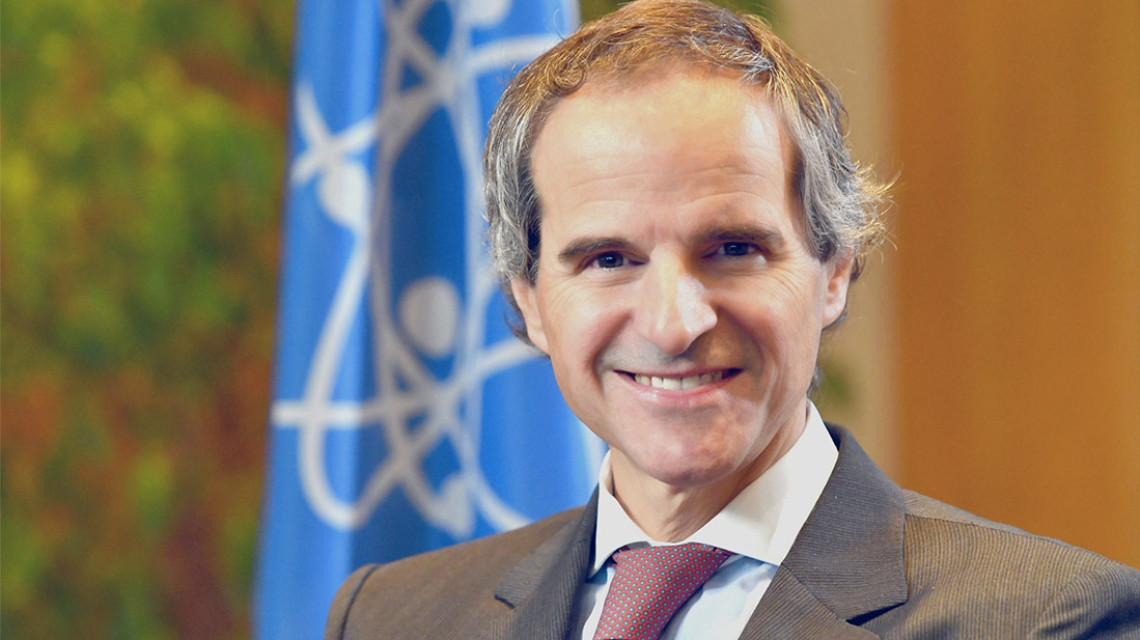
If you would like to learn more about the IAEA’s work, sign up for our weekly updates containing our most important news, multimedia and more.
Securing our nuclear world
Rafael Mariano Grossi

Nuclear technology improves the lives of millions of people worldwide in energy, health care, industry, farming and many other areas. But nuclear and other radioactive material inevitably draws malevolent interest from terrorists and other criminals. In this time of uncertainty, with conflict and tensions in many regions, it is vital that such material is protected from falling into the wrong hands. Only in this way can we ensure that the great benefits of nuclear technology for peace and development are sustainable.
The IAEA is the focal point for international cooperation in nuclear security. We help countries to provide effective physical protection for nuclear and other radioactive material and to put the necessary systems, laws and regulations in place. Our guidance helps countries to prevent, detect and respond to malicious acts involving radioactive substances and ensure that people and the environment are protected as well as humanly possible.
“ The primary responsibility for nuclear security lies with each individual country. But the threat is global and requires a global response.
The IAEA’s International Conference on Nuclear Security: Sustaining and Strengthening Efforts to be held from 10–14 February 2020 is an important opportunity for ministers, policymakers, senior officials and experts to discuss current approaches and priorities for nuclear security.
This edition of the IAEA Bulletin provides an overview of our work in this field. You can learn how Senegal worked with the IAEA to develop an Integrated Nuclear Security Support Plan to strengthen its national nuclear security regime, and how Romania made use of IAEA support in nuclear forensics against criminals who were using radioactive materials illicitly.
A strong national nuclear security regime requires well-trained and educated professionals. Graduates from the International School on Nuclear Security in Italy have returned home and strengthened national nuclear security, while training centres like the State Nuclear Security Technology Centre in China help professionals refine their skills and get experience in a range of nuclear security-related areas.
To tap into the brightest minds, the IAEA is committed to increasing the participation of women in all areas of our work and helping countries to improve gender balance in the nuclear field. Three female senior nuclear security professionals share their experiences and offer advice to those interested in working in this field.
Helping to put effective nuclear security measures in place at major public events is an important part of the IAEA’s services, which also has long-term benefits for the countries concerned. As nuclear and radioactive material is most vulnerable to theft or sabotage when it is being transported, such operations are carefully choreographed to ensure maximum security.
The IAEA’s Incident and Trafficking Database keeps track of material that has been lost or stolen, reducing the risk that it will fall into the wrong hands and improving the chances of it being recovered. Innovative technology, such as radiation detection backpacks, plays a key role in detecting materials at risk of being used for malicious purposes.
The primary responsibility for nuclear security lies with each individual country. But the threat is global and requires a global response. By providing practical assistance and bringing together political leaders and technical experts to share experience, the IAEA makes a vital contribution to global nuclear security, helping countries to remain ahead of the curve in guarding against nuclear terrorism.

